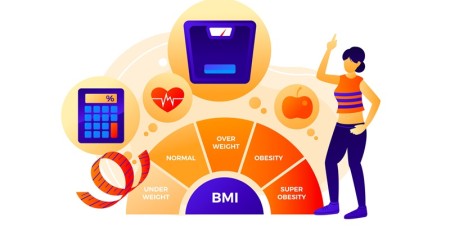Is Alcoholism Genetic? A Look at Hereditary Factors and Predisposition
Key takeaways:
- About half of a person’s risk of developing alcoholism is due to genetic factors.
- Environmental factors also play a role, such as life experiences, including trauma.
- If you are at risk of alcoholism, there are things that you can do to help reduce your chances of developing an alcohol addiction, like abstaining from alcohol or moderating your drinking.
Many people drink alcohol, but only some develop alcohol use disorder. For example, in a 2020 National Study, half of Americans ages 12 and older reported using alcohol within the past month of completing the study survey. Around 10% met the criteria for alcohol use disorder within the past year. This difference has led many experts and researchers to wonder why some people who drink alcohol develop an addiction, while others don’t.
Research on the causes of alcoholism has found that both genetics and environmental factors affect a person’s risk. Understanding your risk of alcoholism can motivate you to monitor your drinking and take action if you notice signs of a problem. Read on to learn more about the role of genetics in alcoholism.
What causes alcoholism?
Alcoholism is also known as alcohol addiction and alcohol use disorder. It is a condition where a person has difficulty controlling their alcohol use. A person with alcoholism may continue to drink even though it negatively affects different areas of their life, like their health and relationships.
After decades of research, experts believe that alcoholism is caused by a combination of genetic and environmental factors. But the relationship between risk of alcoholism, genetics, and environment is complex. Genes alone don’t necessarily cause alcoholism. Rather, genetic and environmental factors work together to affect a person’s risk. Epigenetics refers to how one’s environment and behaviors affect the way that genes function.
Is alcoholism genetic?
Family members of people with alcohol use disorder can inherit the condition. You have probably seen families where two or more members have an alcohol addiction. Having a family member with alcoholism definitely affects a person’s risk. Genetics also explain how and why alcoholism is “passed down” between family members.
For example, we can look at studies with adopted children. In these studies, adopted kids were more likely to have an alcohol addiction if their biological parents also had alcohol-related problems. The kids weren’t as likely to later misuse alcohol if their adopted parents had drinking issues.
While genetics play a role in the risk of alcoholism, there is no “alcoholic gene.” Someone’s risk of developing alcohol use disorder is due to variations in many different genes. Researchers believe that hundreds of different genes play a role in alcoholism.
Experts have pinpointed two specific genes as having an effect on risk of alcohol use disorder. They are the ALDH2 and ADH1B genes. These genes affect how the body metabolizes alcohol, or breaks it down and processes it. Variations of these genes are linked to a buildup of acetaldehyde, a chemical that results from alcohol being metabolized in the body. People who have certain mutations on these genes tend to have higher levels of acetaldehyde after drinking alcohol. These higher levels cause unpleasant side effects like increased heart rate, flushing, and nausea.
In other words, if someone has certain variations in these two genes, then they will feel worse after drinking alcohol than someone who doesn’t have variations in these genes. As a result, they may not be drawn to alcohol as strongly as others. In turn, they have a lower risk of alcoholism due to this genetic mutation.
Is alcohol tolerance genetic?
Tolerance is a symptom of alcohol use disorder. Alcohol tolerance develops in the body when a person drinks frequently over time. When tolerance happens, a person feels less of an effect when drinking the same amount of alcohol. This often leads them to drink more alcohol to feel the same effects.
For example, if you drink daily and used to feel “buzzed” after two drinks, you may find yourself eventually needing three drinks to feel buzzed. Researchers believe that a part of the DNA that contains the CYP2E1 gene affects tolerance to alcohol. More research is needed in this area to better understand how genetics and the amount you drink affect alcohol tolerance.
How much does a genetic predisposition to alcoholism increase your chance of addiction?
Around 50% to 60% of a person’s risk for alcoholism is due to genetic factors. This means that genetics play a large role in alcoholism. But environmental factors and the interactions between genetics and the environment are also important.
When it comes to a person’s risk for alcoholism, genetics can affect:
- How a person metabolizes alcohol
- Sensitivity to the effects of alcohol
- Level of tolerance to alcohol
- Symptoms of withdrawal
- The effects of alcohol on organs in the body
Genetics may also affect how well alcoholism treatment works for a person. For example, naltrexone is a medication that is used to treat alcoholism. Studies have found that people who have a variation in a certain gene respond better to naltrexone. More research is needed to understand the role of genetics in alcohol treatment and how to treat alcohol use disorder more effectively.
Why do genetics influence the likelihood of alcoholism?
Genes are segments of DNA that give instructions for how to build molecules called proteins. These molecules affect how the body functions. Humans are believed to have around 20,000 different genes.
Genes explain everything from a person’s eye color to their personality. Genes can also have variants that affect how a person develops. Differences in genes and variants explain why some people are more likely to develop certain conditions, including alcohol use disorder.
If you have a family history of alcohol addiction, then it’s possible that you have a genetic predisposition to alcohol use disorder. This means that you could be more likely to have an alcohol addiction.
While you cannot change your genes, you can control your environment. The only way to be sure to prevent an addiction is to not drink. If you choose to drink, the following actions may help you reduce your risk of developing an alcohol addiction:
- Monitor your drinking, and make an effort to stay within moderate drinking limits.
- Engage in positive sober activities.
- Spend time with people who don’t drink.
- Avoid binge drinking.
- Avoid self-medicating with alcohol.
What are other risk factors for alcoholism.
Environmental factors also help explain your risk of alcohol addiction. These include life experiences, like exposure to trauma. Genetics and environmental factors interact with one another. For example, take a person who has a genetic predisposition to alcoholism and experiences trauma. They may be more likely to turn to alcohol to cope than a person who experiences trauma but does not have a genetic predisposition for alcoholism.
Other risk factors for developing alcohol use disorder include:
- Starting to drink alcohol at a young age
- History of trauma
- Mental health conditions like major depression and schizophrenia
- Difficulty controlling impulses in childhood or adolescence
- Cognitive impairments, which include memory issues
The bottom line
Genetics account for about half of a person’s risk of developing alcohol use disorder. The remainder of risk is due to a combination of environmental factors and epigenetics, which is how your environment and behavior impact gene functioning. Understanding your risk of alcoholism is important. If you believe that you have a genetic predisposition, you can benefit from carefully monitoring your drinking and getting help if you notice that you’re showing signs of alcohol use disorder.
Book a Free Video or Phone Consultation with our Pharmacist
References
Centers for Disease Control and Prevention. (2020). Dietary guidelines for alcohol.
Edenberg, H. J., et al. (2013). Genetics and alcoholism. Nature Reviews Gastroenterology & Hepatology.
National Institute of General Medical Sciences. (2021). Genetics.
National Institute on Alcohol Abuse and Alcoholism. (2003). The genetics of alcoholism.
National Institute on Alcohol Abuse and Alcoholism. (n.d.). Genetics of alcohol use disorder.
National Institute on Alcohol Abuse and Alcoholism. (2021). Understanding alcohol use disorder.
National Institute on Drug Abuse. (2017). Tolerance, dependence, addiction: What’s the difference?
National Institute on Drug Abuse. (2019). Genetics and epigenetics of addiction DrugFacts.
Substance Abuse and Mental Health Services Administration. (2021). Key substance use and mental health indicators in the United States: Results from the 2020 national survey on drug use and health.
Substance Abuse and Mental Health Services Administration. (2022). SAMHSA’s National Helpline.
Vasiliou, V., et al. (2006). CYP2E1 and catalase influence ethanol sensitivity in the central nervous system. Pharmacogenetics and Genomics.
Yang, P., et al. (2018). The risk factors of the alcohol use disorders – Through review of its comorbidities. Frontiers in Neuroscience.
Zakhari, S. (n.d.). Overview: How is alcohol metabolized by the body? National Institute on Alcohol Abuse and Alcoholism.
Written by Emily Guarnotta, PsyD | Reviewed by Mona Bapat, PhD, HSPP










